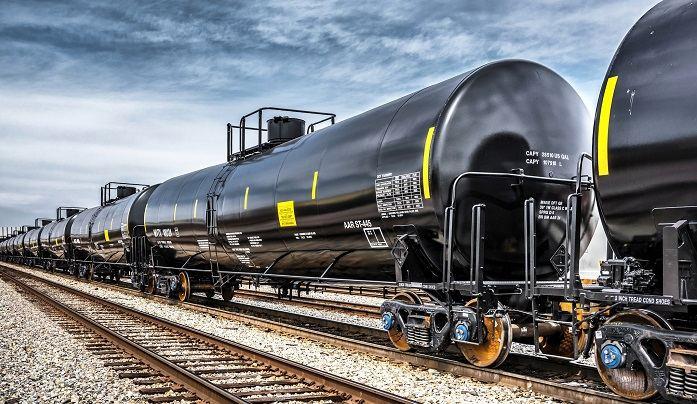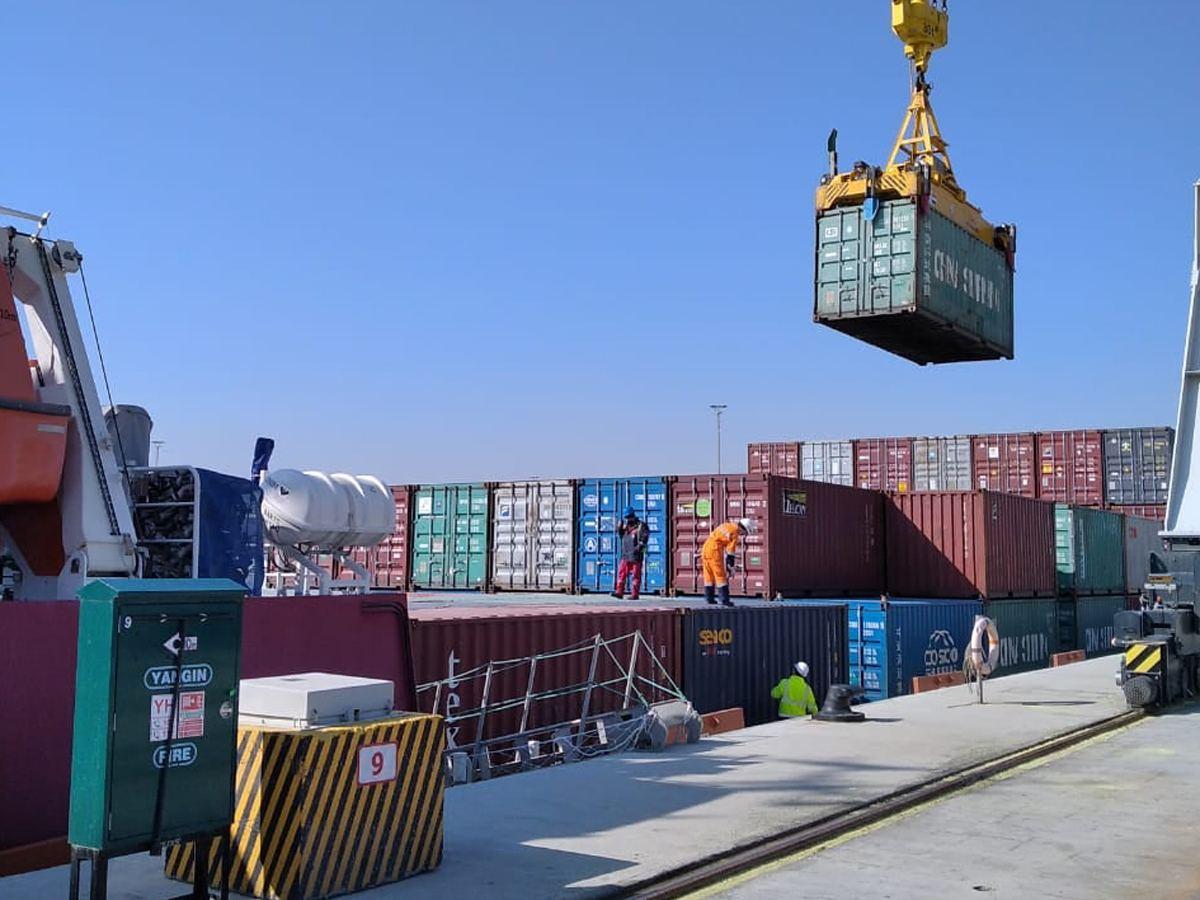Azerbaijan intercepts Scandinavian cargo flow: Trans-Caspian route to replace North-South corridor Review by Khazar Akhundov
The global significance of the transport potential of the South Caucasus has notably increased amid the recent geopolitical changes related to the ongoing war in Ukraine. Currently, Azerbaijan's European partners are switching to the Transport Corridor Europe-Caucasus-Asia (TRACECA) corridor railway routes, the implementation of which has become impossible due to the sanctions imposed on Russia. So, on May 10, the Finnish logistics operator Nurminen Logistics announced the launch of a new container route linking the Scandinavian region with China, transiting through Central Europe, the Black and Caspian Seas. Initially, the railway communication with Finland was planned to be carried out along the North-South International Transport Corridor, and in June 2021 a container block train was sent from Helsinki in transit through Russia, Azerbaijan, and Iran to the Indian port of Nava Sheva.
The Russian-Ukrainian war, which has been lasting over two and a half months, and that gradually tightened anti-Russian sanctions have considerably limited the access of Russian companies to global transport hubs, primarily in Europe and North America. At the same time, the traditional international transit routes passing through the territory of Russia and Belarus, connecting the countries of the Old World with the region of Central Asia and the Far East, are being rearranged. Most European freight carriers are halting cooperation with the Russian Railways as well as with Russian ports.
Since early March 2022, cargo traffic between the ports of the Scandinavian countries and the port of Saint Petersburg began to consistently decrease, and this especially applies to the ports of Finland and Estonia, from where most containers were traditionally delivered to the harbour of the Northern capital of Russia. Moreover, not only direct deliveries were reduced, but also those with reloading at the transshipment port to land transport: the logistics of transshipment of goods through the ports of Tallinn or Helsinki increased by several times due to additional rates for reloading, handling, and trucking.
Well, on March 27, as part of the EU sanctions policy, the Finnish VR Transpoint railway company suspended freight traffic (container and dry cargo) in the east, except for Russian export raw materials, mainly fuel and oil products. However, the Finnish VR Group railway operator, which carries out these deliveries, eyes to completely stop any cargo shipment with Russia by late 2022.
“According to our estimates, by late summer, traffic will be reduced by about a third of the original level. Some customers want to continue transportation until the end of the period, but we are negotiating to stop transportation earlier than this period. In any case, all Russian cargo transportation carried out by VR will stop no later than the end of the year,” VR Group Managing Director Topi Simola said recently.
At the same time, VR Group will terminate the agreement with the Russian Railways, as well as sell its shares in affiliates and subsidiaries in Russia related to freight transportation.

Thus, Finland, connected with Russia by very old and extensive transport links, is consistently terminating all projects for the shipment of goods by sea, rail, and road. At the same time, the transit component of Finnish carriers will also be curtailed, which will most directly affect Azerbaijan. The fact is that the plans for the transshipment of goods between Finland, Iran, and India, discussed in 2005, within the North-South corridor, gained real features last year. In June 2021, a pilot dispatch of the first block train with 32 pieces of 40-ft containers loaded with paper products from the capital of Finland - Helsinki to the Indian port of Nava Sheva took place, transiting through the territory of Russia and Azerbaijan. The Azerbaijani ADY Container Company acted as the operators of this project - its railway platforms were sent to Finland for loading, AO RJD Logistics, and Tarkib Trans Co. also participated in this pilot undertaking as partners. This experience confirmed that the transshipment of goods along this 7,200-km route takes about 22-23 days, and allows reducing transport costs by 30 per cent compared to the longer sea route.
Unfortunately, despite the profitability and logistical convenience of this route, the current geopolitical situation is pushing Russia's former European partners out of any joint undertakings with Moscow within the North-South corridor.
Will Azerbaijan lose from this, counting on significant transit revenues due to cargo traffic between the Scandinavian countries and the region of Iran and India? As it turned out, the transport potential of Azerbaijan makes it possible to minimise the problem that has arisen, and the Scandinavian transit will still be transshipped through Azerbaijan. In particular, the largest Finnish freight operator Nurminen Logistics is launching the first test container train along a track that bypasses Russia. "The route starts in China and passes through Kazakhstan, Azerbaijan, Georgia, and Romania to Central Europe with a final destination in Finland," the Finnish company said in a press release published on May 10.
The Finnish logistics group Nurminen Logistics has been organizing rail transportation between China and Northern Europe for several years, but closed its representative office in Russia in mid-March due to “drastic operational changes”. Well, a new route bypassing Russia was developed together with the Kazakh operator Kazakhstan Temir Zholy, with which the Finnish operator signed a memorandum of cooperation in March 2022. Corresponding agreements were also reached with China Railways, and, according to [Finnish] Nurminen Logistics CEO Olli Pohjanvirt, the new route was built almost from scratch within two years.
As earlier reported, the start of train permanent traffic is planned between July and September 2022, relevant agreements have been reached between the railway structures of China, Kazakhstan, and Azerbaijan. It was also agreed that at the first stage, the mobile capacities of the new route will be based on railway cars registered in Kazakhstan and owned by local companies.

Thus, Finnish cargo carriers are becoming the essential Nordic partner of the Trans-Caspian International Transport Route (TITR), which is mainly designed for the transportation of containerized multimodal cargo between China, Kazakhstan, Azerbaijan, Georgia, and Turkey.
The Finnish operator emphasizes that participation in the TITR route will strengthen the existing railway communication between Asia and the countries of Northern Europe, as well as expand container train services, taking into account the cargo potential being formed in Norway, Sweden, and Finland. This potential is quite capacious, and, according to available information, shippers and forwarders from the Scandinavian countries are planning to establish continuous supplies of paper products, furniture, machinery, and equipment to Central Asia. Meanwhile, in the reverse direction, the export of petrochemical (fuel, polymers, fertilizers) and textile products, some types of food, ore concentrates, building materials, etc. will be launched. In turn, the TITR route will ensure the transshipment of Chinese industrial products to the Scandinavian countries, primarily equipment, electronics, clothing and footwear, and other consumer goods. Moreover, given the fact that the European Union as a whole is an important trade partner of China, the range of cargo will only increase over time due to the connection of additional multimodal container options to Finnish block trains, thereby forming a stable cargo base for the route.
Azerbaijan will certainly become the beneficiary of these undertakings, and together with bonuses for the provision of transit services, it will receive an additional outlet for exporting its own non-oil industrial and agricultural products to the region of Northern Europe. On the other hand, in a couple of years, after the commissioning of the railway component of the Zangazur corridor, a transit infrastructure will appear in the direction of Iran and India, and this branch can also be connected to Finnish freight traffic, becoming an effective alternative to the original plans envisaged under the North-South International Transport Corridor project.








